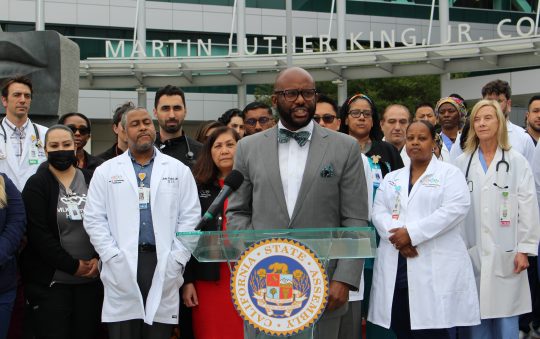
What are the two biggest problems in health care for most Americans?
For those of us who’ve had to deal with more than a routine cold, the answer is clear: affordability and complexity.
Although 90% of Americans are now insured, that insurance is less likely do what we think insurance is supposed to do for us.
That’s because our health system is not transparent about costs, which continue to rise. And it’s certainly not simple to use.
Determining whether a doctor is in or out of network, getting authorizations and referrals—these are timely and complex tasks. They provoke anxiety because so much is at stake, both in quality of care and in financial affordability.
It doesn’t have to be this way.
Imagine a different system, a system that allows you both to choose your doctor and to see the costs up front. One that pays predictable, affordable prices for health care services and prescription medicine.
We have such a system for some of our citizens today: It’s called Medicare. Now imagine the same choices and transparency available to all.
Health care costs are rapidly eroding the economic security of all Americans. A large, single payer acting on behalf of hundreds of millions of Americans could drive those costs down. It would have tremendous negotiating power with drug companies, hospitals, and other providers. The good news: Momentum is building to make this simpler and more affordable system a reality for everyone.
As the issue of how we create better health care access for everyone gains visibility, I want to make sure you know the facts.
Some special-interest groups are trying to scare people about losing employer-based insurance under a single payer system. But what they don’t talk about is that employer coverage is not the good deal it used to be. American workers are paying more and more for coverage through their employers, and receiving less as companies reduce benefits to control costs. Deductibles and co-pays are up.
Premiums and other fees for employer-based coverage are at an all-time high. And when employers sponsor insurance for their workers, employees pay for that contribution through reduced wages.
The fact is, health care costs are rising more quickly than wages, which hurts the people who can least afford it. According to a recent Kaiser Family Foundation study, family premiums for health care have doubled since 2009, and deductibles have risen 150%—while average wages are only up 25%. It’s hard to make up that loss. It’s even harder to imagine it continuing.
When you add up all of the hidden costs, on average, approximately 20% of a family’s income is spent on health care. Even if taxes go up to finance a single-payer system, it is likely that total costs for families and individuals would go down.
Health care was the top issue behind the “Blue Wave” that helped carry Congressional Democrats to victory in the 2018 midterm elections. Two out of three of the leading Democratic candidates for president are pro-single-payer. Hakeem Jeffries, the moderate Black Congressman from New York who’s one of the top ranking Democrats in the House, recently decided to co-sponsor the House Medicare for All bill. This is big news.
Gov. Newsom is serious about California leading the way toward a single payer system and universal health care coverage. But a state can’t implement a single payer system without changes at the federal level—federal laws limit what states can and can’t do.
Medicare is a federal program. So California needs the federal government as a partner to move toward single payer. If California got that partner, what would it mean for our families here in South L.A. and across America?
First and foremost, Medicaid would go away under a single payer system. This is important for communities of color whose biggest challenge is access to care. That’s because Medicaid, the public program that covers low-income Americans, reimburses doctors poorly, especially in California. This translates into fewer doctors willing to serve disadvantaged communities like ours.
Medicare, by contrast, pays providers more. It attracts more doctors and higher quality care. Little wonder that study after study shows that seniors are pretty happy with their coverage.
What if everyone got this kind of care? First of all, Americans would be healthier if they could access affordable care easily, instead of waiting until a condition becomes an emergency.
It means our families would never again be blindsided – and bankrupted – by complex health care bills that they thought, incorrectly, were covered by their insurance.
It means no one would be denied the care they need just because they have a pre-existing condition.
Fortunately, there are reasons for hope and the possibility of change. But we can’t be complacent. It’s critical that we speak out and show up, now and on Election Day. A better health care system is in the balance.
Are you ready to bring about a grand transformation? I am. Our health, and the health of our country, depends on it.
Dr. Elaine Batchlor is the chief executive officer of Martin Luther King, Jr. Community Hospital in Watts.
Share your feedback, questions, comments and stories with Dr. Batchlor at [email protected].







